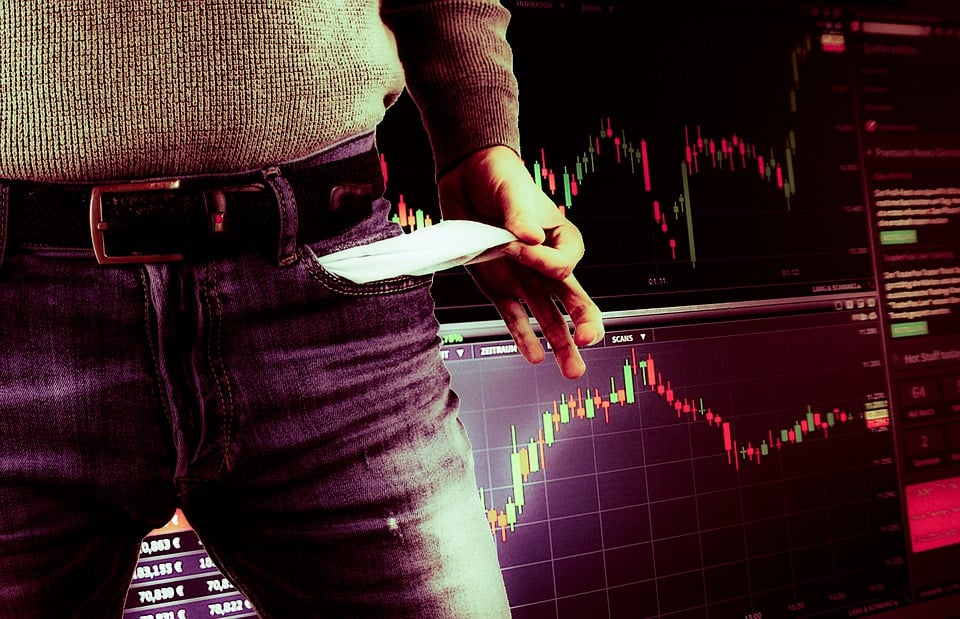The foreign exchange (forex) market has a reputation for being a high-risk, high-reward game, attracting ambitious traders hoping to turn a quick prof
The foreign exchange (forex) market has a reputation for being a high-risk, high-reward game, attracting ambitious traders hoping to turn a quick profit.
However, the reality for many is much less glamorous, with the majority of traders facing consistent losses. This article presents a basic rundown of the reasons behind these losses, the role of leverage in forex trading, and the potential foul play by brokers that can contribute to a trader’s downfall.
Forex trading is a notoriously volatile market, with rapid price movements making it difficult for traders to predict and capitalize on market shifts. Despite the occasional small wins, most traders ultimately lose in the long run. The reasons for this are multifaceted:
- Lack of experience: Many new traders enter the forex market with unrealistic expectations and limited knowledge of trading strategies, market dynamics, and risk management techniques. This often leads to impulsive decision-making and devastating losses.
- Overconfidence and greed: Even experienced traders can fall victim to overconfidence and greed. Driven by the desire to make significant profits, traders may take on excessively risky positions or ignore warning signs in the market.
- High leverage: Leverage allows traders to control large positions with a relatively small investment. While this can amplify gains, it also magnifies losses. Forex trading typically involves higher leverage than stock trading, with ratios often reaching 1:500 or more. This high level of leverage can lead to severe losses even with minor market fluctuations.
- Emotional decision-making: Forex trading is often driven by fear and greed, which can cloud judgment and lead to irrational decisions. Traders who react impulsively to market movements or fail to stick to a disciplined trading plan are more likely to incur losses.
In addition to these inherent challenges, foul play by forex brokers can also contribute to traders’ losses.
The regulation of forex brokers is a critical aspect of maintaining a fair and secure trading environment. However, not all jurisdictions offer the same level of oversight, and some brokers exploit this by seeking licenses from countries with lax or permissive regulatory standards.
In many cases, brokers choose to obtain licenses from Caribbean nations like Saint Vincent and the Grenadines (SVG) or other small island nations like Mauritius or Vanuatu. The regulatory requirements in these jurisdictions are typically minimal, often involving little more than paying an annual fee. As a result, brokers licensed in these regions can offer significantly higher leverage, such as 1:500 or 1:1000.
The lack of stringent regulation in these jurisdictions allows brokers to operate with greater freedom and less accountability. This can lead to the possibility of engaging in foul play or other unethical practices without facing significant repercussions. For traders, this presents a considerable risk, as they may be exposed to unfair trading conditions, financial loss, or even fraud.
This disparity in regulation can leave traders exposed to unscrupulous brokers and undermine the overall integrity of the forex market.
To mitigate these risks, traders should prioritize working with brokers licensed by reputable regulatory bodies. These organizations ensure brokers adhere to strict guidelines and maintain a high level of transparency and fair dealing. The most respected regulatory authorities in the industry include:
- Australian Securities and Investments Commission (ASIC, Australia)
- Financial Conduct Authority (FCA, UK)
- Financial Services Agency (FSA, Japan)
- Investment Industry Regulatory Organization of Canada (IIROC, Canada)
- Swiss Financial Market Supervisory Authority (FINMA, Switzerland)
- Financial Markets Authority (FMA, New Zealand)
- Commodity Futures Trading Commission (CFTC, US)
- Monetary Authority of Singapore (MAS, Singapore)
- Cyprus Securities & Exchange Commission (CySEC, Cyprus)
- Securities Futures Commission (SFC, Hong Kong)
By choosing a broker regulated by one of these authorities, traders can benefit from a more secure and transparent trading environment, helping them to better manage risks and protect their investments. Additionally, in case of disputes or issues, these regulatory bodies often provide a means for traders to voice their concerns and seek redress, further enhancing the level of protection they receive.
These organizations enforce strict regulatory standards designed to protect traders and maintain market integrity with robust oversight to reduce the likelihood of clients’ falling victim to broker misconduct or other unethical practices.
Dodgy brokers usually engage in various questionable practices, including:
To safeguard traders and ensure market integrity, reputable regulatory bodies have imposed stricter leverage limits, such as 30:1 for retail forex traders. While these measures provide some protection, they may not be sufficient to shield inexperienced or impulsive traders from the various pitfalls of the forex market.
The combination of high leverage, limited knowledge, emotional decision-making, and potential broker foul play renders forex trading a high-risk endeavor that demands caution and diligence.
For traders to thrive in this volatile environment, it is essential to develop a comprehensive understanding of trading strategies, risk management, and market dynamics. Additionally, traders must remain vigilant and conduct thorough due diligence when selecting a broker to guarantee they are working with a trustworthy and transparent partner. By prioritizing education, awareness, and informed decision-making, traders can better navigate the challenges of the forex market and increase their chances of success.
www.miragenews.com
